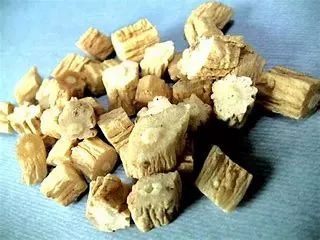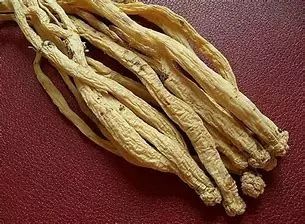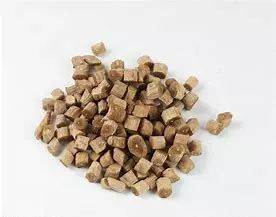Name: Codonopsis (Dang Shen)
Alias: 防党, 防党参, 潞党参, 西潞党, 西党参, 东党, 台党参, 上党, 白条党, 纹党.
Source: Codonopsis is the root of the plant Codonopsis pilosula, belonging to the Campanulaceae family.
Classification: Qi-tonifying herb
Properties: Sweet, neutral.
Functions: Strengthens the spleen and benefits the lungs, nourishes blood and generates fluids.
Indications: Treats spleen and lung Qi deficiency, poor appetite, fatigue, cough with shortness of breath, insufficient Qi and blood, pale complexion, palpitations, shortness of breath, thirst due to fluid damage, and internal heat leading to thirst.
Dosage: 9-30 grams.
Source: 2015 Edition of the Pharmacopoeia

01、Functions and Effects
Functions and Effects
1. Codonopsis inhibits or kills leprosy bacilli: Mix equal parts of Codonopsis, Chuanxiong (重楼), and the root bark of the prickly pear (刺包头根皮). Grind Codonopsis and Chuanxiong into fine powder; then boil the root bark with an appropriate amount of water three times, concentrating the liquid to a certain amount (enough to moisten the powder). Add an appropriate amount of honey, mix the powders into pills weighing three qian each; it can also be made into a paste. Take three times a day, one pill each time, with warm water. (Beijing University of Chinese Medicine “New Medical Methods Compilation”)
2. Codonopsis treats insufficient middle Qi and organ prolapse: Codonopsis and roasted Astragalus (炙黄芪) each 15 grams, Bai Zhu (白术) 9 grams, and Sheng Ma (升麻) 5 grams. Decoction for oral administration, one dose per day.
3. Codonopsis benefits Qi and nourishes blood: For symptoms of both Qi and blood deficiency (shortness of breath, fatigue, pale complexion, pale tongue, or even weakness and thin pulse), Codonopsis can be combined with Bai Zhu, Fu Ling, Gan Cao, Dang Gui, Shu Di, Bai Shao, and Chuan Xiong (like Ba Zhen Tang) to achieve the effect of tonifying both Qi and blood. Moreover, traditional experience suggests that benefiting Qi can promote blood nourishment, and strengthening the spleen can help generate blood. Therefore, in treating blood deficiency, Codonopsis is often used to benefit Qi and strengthen the spleen to assist in blood nourishment. For example, it can be combined with Bai Zhu, Fu Ling, Gan Cao, Dang Gui, Shu Di, Bai Shao, Yuan Zhi, Wu Wei Zi, and Chen Pi to create Ren Shen Yang Rong Tang (using Codonopsis instead of ginseng); or combined with Huang Qi, Bai Zhu, Dang Gui, Bai Shao, Chen Pi, Long Yan Rou, Mu Xiang, and Yuan Zhi to create Gui Pi Tang, both of which are commonly used formulas for benefiting Qi and nourishing blood. Modern experiments have shown that this herb can stimulate the spleen to increase hemoglobin and red blood cells. In recent years, it has often been used in combination with Dang Gui, Bai Shao, Sheng Di, and Shu Di to treat various types of anemia.
4. Codonopsis treats damage to the spleen and stomach caused by cold and harsh medications, leading to sores in the mouth and tongue: Codonopsis (roasted), Huang Qi (roasted) each 2 qian, Fu Ling 1 qian, Gan Cao (raw) 5 fen, Bai Shao 7 fen. Decoction in plain water, taken warm. (“Throat Medicine Collection”)
5. Codonopsis treats deficiency and internal injury, cold in the intestines and stomach, chronic diarrhea, shortness of breath and thirst, fever with spontaneous sweating, and women’s blood collapse and childbirth-related diseases. (“Handbook of Chinese Medicinal Materials”)
6. Codonopsis treats diarrhea and prolapse of the rectum due to Qi deficiency during childbirth: Codonopsis (remove the fibrous part, stir-fried) 2 qian, roasted Astragalus, Bai Zhu (clean stir-fried), nutmeg powder, and Fu Ling each 1 qian 5 fen, Huai Shan Yao (stir-fried) 2 qian, Sheng Ma (honey-roasted) 6 fen, and roasted Gan Cao 7 fen. Add two slices of ginger for decoction. Or add 5 fen of processed Aconite. (“Essential Medical Knowledge”)
7. Codonopsis is a blood tonic. It is suitable for chronic anemia, sallow complexion, leukemia, glandular disease, and rickets. (“Scientific Folk Herbal Medicine”)
8. Codonopsis treats thirst due to heat disease: Mix Codonopsis with Goji Berries (2:1 ratio) to make a Codonopsis and Goji decoction, which benefits Qi and generates fluids.
9. Codonopsis treats oral sores in children: 1 liang of Codonopsis and 5 qian of Huang Bai. Grind into fine powder and blow onto the affected area. (“Compilation of Proven Chinese Medicine Recipes from Qinghai Province”)
10. Codonopsis clears the lungs. Although it does not have the strong warming and tonifying effects of ginseng, it has a gentle and neutral effect in clearing the lungs, unlike Sha Shen, which is cold and specifically drains lung Qi. (“Bencao Fengyuan”)
11. Codonopsis treats cough and wheezing due to Qi deficiency: The lungs are the master of Qi; if the lungs are deficient, Qi cannot be controlled, leading to symptoms such as shortness of breath, weak speech, low cough sound, spontaneous sweating, fear of wind, susceptibility to colds, and ineffective phlegm expectoration. For cough and wheezing due to Qi deficiency, this herb is often combined with Mai Dong, Wu Wei Zi, Huang Qi, Gan Jiang, Bei Mu, and Gan Cao.
12. Codonopsis strengthens the spleen and stomach: Insufficient Qi in the spleen and stomach can lead to symptoms such as fatigue in the limbs, shortness of breath, lack of appetite, and soft stools. Codonopsis can enhance spleen and stomach function and benefit Qi, and can be combined with Bai Zhu, Fu Ling, Gan Cao, and Chen Pi (Wu Wei Yi Gong San) or Bai Zhu, Shan Yao, Bian Dou, Qian Shi, Lian Rou, Yi Yi Ren, and Fu Ling (Shen Ling Bai Zhu San) for use.
13. Codonopsis tonifies the middle and benefits Qi, harmonizing the spleen and stomach and alleviating thirst. (“Bencao Congxin”)
14. Codonopsis treats primary hypotension: 6 grams of Codonopsis, 6 grams of Huang Qi, 3 grams each of Wu Wei Zi, Mai Dong, and Rou Gui. Grind into powder and take 6 grams each time, three times a day, for 30 days.
15. Codonopsis can strengthen the spleen, nourish the stomach, moisten the lungs, generate fluids, and regulate middle Qi. It is similar to ginseng but is particularly valuable for its ability to strengthen the spleen without causing dryness, nourish the stomach yin without causing dampness, moisten the lungs without being cold, nourish the blood without being overly rich, invigorate the clear Yang, and stimulate middle Qi without causing harsh dryness. It is stronger than Liao Shen but less inclined towards Yin, and it is more balanced than Korean ginseng, which is strong but slightly harsh. It is suitable for nourishing the five organs without any contraindications. However, it is relatively weak and cannot sustain for long; for post-illness deficiency, taking two or three qian can only invigorate the spirit for one day, indicating that it is not suitable for prolonged use. Nevertheless, it supports the central region and nourishes the four corners, so all ancient and modern formulas that use ginseng can be replaced with Codonopsis, and any application of ginseng can also be substituted with Codonopsis. (“Bencao Zhengyi”)
16. Codonopsis clears the lungs, tonifies the original Qi, opens the voice, and strengthens the muscles: 1 jin of Codonopsis (soft and sweet, sliced), 0.5 jin of Sha Shen (sliced), and 4 liang of longan meat. Boil in water to concentrate the juice until it forms beads, and store in a ceramic container. Each time, take a wine cup and mix with hot water, or mix with the decoction. (“De Pei Bencao” Codonopsis Paste)
18. Codonopsis, combined with Huang Qi, can stop diarrhea, and when paired with stone lotus, it can stop dysentery. The main ingredient is Dang Gui for invigorating blood, and jujube seeds to nourish the heart. To nourish the lungs, mix with honey and steam; to strengthen the spleen, add mulberry bark or broad-leaved orange peel. (“De Pei Bencao”)
19. Codonopsis treats lung deficiency and benefits lung Qi. (“Gangmu Shiyi”)
Various Discussions
① “Bencao Fengyuan”: “Codonopsis, although it does not have the strong warming and tonifying effects, has a gentle and neutral effect in clearing the lungs, unlike Sha Shen, which is cold and specifically drains lung Qi.”
② “De Pei Bencao”: “Codonopsis, combined with Huang Qi, can stop diarrhea, and when paired with stone lotus, it can stop dysentery. The main ingredient is Dang Gui for invigorating blood, and jujube seeds to nourish the heart. To nourish the lungs, mix with honey and steam; to strengthen the spleen, add mulberry bark or broad-leaved orange peel.”
③ “Bencao Zhengyi”: “Codonopsis can strengthen the spleen, nourish the stomach, moisten the lungs, generate fluids, and regulate middle Qi. It is similar to ginseng but is particularly valuable for its ability to strengthen the spleen without causing dryness, nourish the stomach yin without causing dampness, moisten the lungs without being cold, nourish the blood without being overly rich, invigorate the clear Yang, and stimulate middle Qi without causing harsh dryness. It is stronger than Liao Shen but less inclined towards Yin, and it is more balanced than Korean ginseng, which is strong but slightly harsh. It is suitable for nourishing the five organs without any contraindications. However, it is relatively weak and cannot sustain for long; for post-illness deficiency, taking two or three qian can only invigorate the spirit for one day, indicating that it is not suitable for prolonged use. Nevertheless, it supports the central region and nourishes the four corners, so all ancient and modern formulas that use ginseng can be replaced with Codonopsis, and any application of ginseng can also be substituted with Codonopsis.”
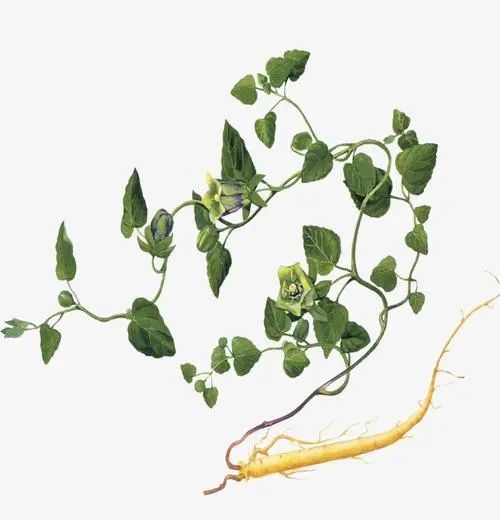
05、Related Combinations
Formulas
① Codonopsis and Goji decoction, tonifying original Qi, opening the voice, and strengthening the muscles: 1 jin of Codonopsis (soft and sweet, sliced), 0.5 jin of Sha Shen (sliced), and 4 liang of longan meat. Boil in water to concentrate the juice until it forms beads, and store in a ceramic container. Each time, take a wine cup and mix with hot water, or mix with the decoction. (“De Pei Bencao” Codonopsis Paste)
② Treating diarrhea and prolapse of the rectum due to Qi deficiency during childbirth: Codonopsis (remove the fibrous part, stir-fried) 2 qian, roasted Astragalus, Bai Zhu (clean stir-fried), nutmeg powder, and Fu Ling each 1 qian 5 fen, Huai Shan Yao (stir-fried) 2 qian, Sheng Ma (honey-roasted) 6 fen, and roasted Gan Cao 7 fen. Add two slices of ginger for decoction, or add 5 fen of processed Aconite. (“Essential Medical Knowledge”)
③ Treating damage to the spleen and stomach caused by cold and harsh medications, leading to sores in the mouth and tongue: Codonopsis (roasted), Huang Qi (roasted) each 2 qian, Fu Ling 1 qian, Gan Cao (raw) 5 fen, Bai Shao 7 fen. Decoction in plain water, taken warm. (“Throat Medicine Collection”)
④ Treating oral sores in children: 1 liang of Codonopsis and 5 qian of Huang Bai. Grind into fine powder and blow onto the affected area. (“Compilation of Proven Chinese Medicine Recipes from Qinghai Province”)
⑤ Inhibiting or killing leprosy bacilli: Mix equal parts of Codonopsis, Chuanxiong (重楼), and the root bark of the prickly pear (刺包头根皮). Grind Codonopsis and Chuanxiong into fine powder; then boil the root bark with an appropriate amount of water three times, concentrating the liquid to a certain amount (enough to moisten the powder). Add an appropriate amount of honey, mix the powders into pills weighing three qian each; it can also be made into a paste. Take three times a day, one pill each time, with warm water. (Beijing University of Chinese Medicine “New Medical Methods Compilation”)
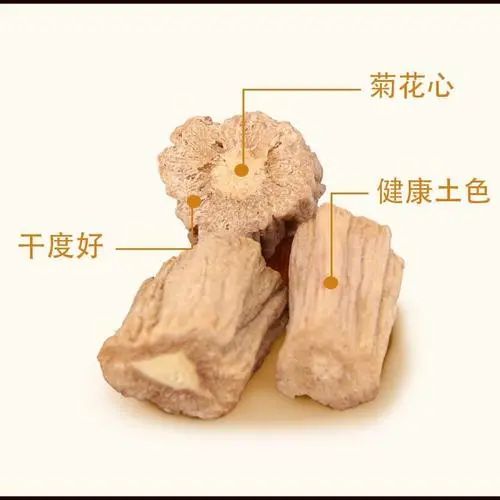
02、ContraindicationsPopulation
Those with excess pathogens should avoid it; those with Qi stagnation and excessive anger should not use it.
Codonopsis Precautions
(1) “De Pei Bencao”: Those with Qi stagnation and excessive anger should avoid it.
(2) “Yao Long Xiaopin”: Those with internal heat should avoid it.
(3) “Zhonghua Bencao”: Those with excess syndrome and heat syndrome should avoid it; it is not suitable for use alone in cases of true deficiency with excess pathogens.
Can Pregnant Women Eat Codonopsis?
Pregnant women should avoid consuming overly tonifying foods, as they may be harmful to the fetus. Foods that are prone to causing internal heat should also be avoided. Traditional Chinese medicine suggests that supplements should not be consumed casually. Codonopsis has the functions of tonifying the middle and benefiting Qi, nourishing blood, and calming the spirit. It is both nourishing and blood-enriching. However, those with Qi stagnation and excessive anger should avoid it. If a pregnant woman has a constitution of Yin deficiency and internal heat, it may lead to the risk of miscarriage, so it is best to avoid it.
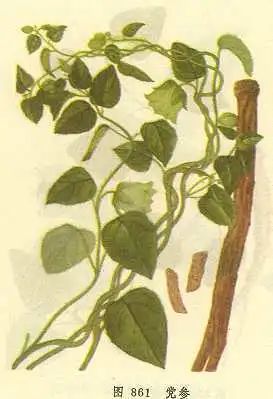
03、Effects of Codonopsis
Effects of Codonopsis
Effects on blood cells, enhancing hematopoietic function.
Oral or subcutaneous injection of Codonopsis root alcohol or water extracts can slightly increase the red blood cells and hemoglobin in normal rabbits; after splenectomy, the effect significantly weakens, suggesting that its “blood-nourishing” effect may be related to the spleen. At this time, there is a tendency for white blood cells to decrease. Northern Codonopsis reportedly does not have this effect. A 1:40 dilution of Codonopsis extract shows no hemolysis in vitro, but after acting on red blood cells, it can change color, becoming turbid and precipitating.
Subcutaneous injection of Codonopsis water extract or alcohol extract or feeding Codonopsis powder can increase the number of red blood cells, while decreasing the number of white blood cells, with oral administration showing significantly greater efficacy than subcutaneous injection. Subcutaneous injection of Codonopsis decoction can also significantly increase the number of red blood cells and hemoglobin content. After splenectomy, the efficacy significantly decreases, indicating that Codonopsis has an effect on the spleen to promote red blood cell production. Oral administration of Codonopsis preparations to mice also significantly increases the number of red blood cells and hemoglobin content, with no significant effect on reticulocyte and lymphocyte counts.
Effects on blood sugar
Subcutaneous injection of Codonopsis extract in rabbits can increase blood sugar; however, if fermented extract is injected or administered orally, there is no such effect, suggesting that the increase in blood sugar is due to the high sugar content in the root. It also cannot inhibit the neurogenic hyperglycemia caused by diuretic injection. Preliminary experiments show that Northern Codonopsis can increase blood sugar when administered orally.
Hypotensive effect
Intravenous or intraperitoneal injection of alcohol or water extracts can lower blood pressure in anesthetized dogs, and preliminary analysis suggests that this is peripheral; it also has some anti-adrenergic effects. The water extract or alcohol-water extract can also lower blood pressure in anesthetized animals and inhibit the isolated frog heart. In chronic hypertensive dogs, daily oral administration of 4 grams (of raw herb) per kilogram did not show any hypotensive effect.
Extracts or total saponins from roots of related plants, when fed to rabbits for a long time (40 days), can increase red blood cell counts (17.5%), and increase body weight (23%); they can also prevent and treat leukocytosis caused by turpentine; long-term oral administration does not show any pathological changes in internal organs. Total saponins administered orally to mice in small amounts can enhance respiration, while large amounts can lower the anesthetic effect of chloral hydrate; they also seem to have some antagonistic effects against strychnine.
Effects on the digestive system, adjusting gastrointestinal motility
Codonopsis is a key herb for tonifying the middle and benefiting Qi, capable of correcting pathological states of gastrointestinal motility disorders. Using chronic implanted gastric electrodes, it was observed that Codonopsis water decoction can regulate the basic electrical rhythm of the stomach in stressed rats, partially counteracting the increased gastric motility and accelerated gastric emptying caused by stress. Codonopsis preparations administered intravenously can inhibit normal gastric motility or enhanced gastric motility induced by neostigmine, showing reduced amplitude and frequency of peristaltic waves. Codonopsis water decoction can improve intestinal motility dysfunction after third-degree burns in mice, significantly increasing the small intestine propulsion rate. Codonopsis liquid has both inhibitory and excitatory effects on isolated guinea pig ileum, which can increase ileal tension or first decrease and then increase, with a slower frequency, and can maintain for a longer time, showing significant antagonistic effects against acetylcholine and 5-HT-induced ileal contractions. Anti-ulcer effects: Codonopsis water decoction can prevent and treat experimental gastric ulcers caused by stress, pyloric ligation, indomethacin, or aspirin. Experimental comparisons show that the neutral extract of Codonopsis has better efficacy against stress-induced ulcers, with an ulcer inhibition rate of up to 98%, followed by the water extract at 72.9%, and the petroleum ether extract showing the least effect. The water-soluble extract of Codonopsis can counteract gastric mucosal damage and gastric ulcers caused by anhydrous ethanol, strong acid (0.6N HCl), and strong alkali (0.2N NaOH). Codonopsis has an inhibitory effect on the basic gastric acid secretion in rats, can reduce gastric protease activity, and can counteract the increase in gastric acid caused by aspirin, as well as inhibit the decrease in prostaglandin E2 (PGE2) and amino sugar content in the gastric mucosa caused by indomethacin and aspirin.
Mechanisms of Codonopsis’ anti-ulcer effects:
(1) Inhibiting gastric acid secretion, reducing gastric juice acidity;
(2) Promoting gastric mucus secretion, enhancing the gastric mucus-bicarbonate barrier;
(3) Increasing the content of endogenous prostaglandins (PGE2) that have protective effects on the gastric mucosa.
Enhancing immune function
Codonopsis extract can enhance the ability of mouse peritoneal macrophages to phagocytize chicken red blood cells. Subcutaneous, intramuscular, or intravenous injection of Codonopsis preparations can significantly increase the number of mouse peritoneal macrophages, enlarge cell volume, increase pseudopodia, and enhance the activity of various enzymes such as nucleic acids, carbohydrates, ATPase, and succinate dehydrogenase, thereby enhancing their phagocytic function. Low concentrations of Codonopsis water decoction can promote mitosis of lymphocytes cultured in vitro and enhance DNA synthesis in activated mouse splenic lymphocytes. Codonopsis has no significant effect on the humoral immune function of normal mice, but it can significantly promote the transformation of lymphocytes in cyclophosphamide-induced immunosuppressed mice, enhancing the function of antibody-producing cells and increasing antibody titers. Codonopsis polysaccharides are the main active components.
Anti-stress effects
Codonopsis can enhance the body’s resistance to harmful stimuli. Codonopsis polysaccharides can prolong swimming time in mice, enhance tolerance to high temperatures, and improve tolerance to hypoxia in adrenalectomized mice. Codonopsis water decoction has anti-hypothermic effects. Oral administration of Codonopsis can protect mice from gamma-ray exposure, increasing their survival rate. The anti-stress mechanism of Codonopsis is mainly related to the stimulation of the pituitary-adrenal cortex axis.
Effects on the cardiovascular system
Cardiotonic and anti-shock effects: Codonopsis can enhance myocardial contractility, increase cardiac output, and has anti-shock effects. Intravenous injection of Codonopsis extracts in anesthetized cats can significantly increase cardiac output without affecting heart rate. In rabbits with late hemorrhagic shock, intravenous administration of Codonopsis injection can raise arterial pressure and prolong survival time. Codonopsis liquid has been shown to enhance left ventricular function in patients with Qi deficiency and blood stasis type coronary heart disease. Patients with coronary heart disease taking Codonopsis liquid for one week can significantly increase left ventricular contractile function and cardiac output without affecting heart rate. Codonopsis can significantly increase the content of myocardial glycogen, succinate dehydrogenase, and lactate dehydrogenase, and has protective effects against hypoxia at normal pressure, tissue cell hypoxia, and microcirculatory hypoxia.
Regulating blood pressure
Codonopsis extracts, alcohol extracts, and water extracts can significantly lower blood pressure in anesthetized dogs and rabbits. Intravenous injection of Codonopsis injection in anesthetized dogs and rabbits can cause a transient drop in blood pressure, but repeated administration does not produce rapid tolerance. The hypotensive effect of Codonopsis is mainly due to peripheral vasodilation. Codonopsis can also raise arterial blood pressure in rabbits with late hemorrhagic shock, indicating a bidirectional regulatory effect on blood pressure.
Anti-myocardial ischemia effects
Codonopsis injection can counteract acute myocardial ischemia induced by posterior pituitary extracts in rats. Oral administration of Codonopsis water extract or intraperitoneal injection of Codonopsis injection can also protect against myocardial ischemia induced by isoproterenol. In dogs with acute myocardial ischemia caused by ligation of the left anterior descending coronary artery, Codonopsis water decoction can significantly reduce the absolute value of the left ventricular end-diastolic pressure increase due to myocardial ischemia. This suggests that Codonopsis can improve myocardial diastolic function, increase myocardial compliance, and reduce coronary perfusion resistance, thereby benefiting blood supply to the left ventricular myocardium and improving myocardial ischemia.
Improving blood rheology
Codonopsis liquid can inhibit ADP-induced platelet aggregation in rabbits. Intravenous injection of Codonopsis liquid can significantly reduce whole blood viscosity and plasma viscosity, inhibiting both in vivo and in vitro thrombus formation. It can also lower the levels of low-density lipoprotein, triglycerides, and cholesterol in serum of hyperlipidemic rabbits. Codonopsis water extract can reduce whole blood viscosity in rats; ether extracts can enhance fibrinolytic enzyme activity in rats, significantly reducing platelet aggregation and plasma thromboxane TXB2 levels. Total saponins can significantly reduce TXB2 levels without affecting the synthesis of prostacyclin PGI2, while alkaloids have the opposite effect, which is not conducive to the Qi-benefiting and blood-activating effects of Codonopsis.
Cognitive enhancement effects
Codonopsis can enhance and improve learning and memory abilities in mice. The n-butanol extract of Codonopsis ethanol extract can antagonize memory acquisition impairment induced by scopolamine, improve memory consolidation impairment induced by sodium nitrite, and memory recall deficits induced by 40% ethanol. This extract does not affect the synthesis of acetylcholine, possibly related to enhancing the binding of acetylcholine to M-receptors. Codonopsis total alkaloids can counteract the decrease in acetylcholine content and acetylcholinesterase activity in the brain induced by scopolamine. A double-blind study observed that normal subjects of different ages showed improved learning and memory abilities after taking Codonopsis water decoction, and both hemispheres of the brain showed simultaneous improvement in learning and memory abilities.
Sedative, hypnotic, and anticonvulsant effects
Codonopsis saponins, both lipid-soluble and water-soluble, administered via the cerebral ventricle can cause high-amplitude slow-wave changes in the EEG of alert rabbits, while intravenous administration only shows this effect for the lipid-soluble portion. Codonopsis injection, water extract, and methanol extract administered intraperitoneally can significantly reduce spontaneous activity in mice. Codonopsis injection administered intraperitoneally can significantly prolong the duration of ether anesthesia in mice, increase the number of mice sleeping due to subthreshold doses of isopentobarbital, and prolong the sleep duration induced by isopentobarbital. Codonopsis saponins can also significantly prolong the sleep duration induced by cyclohexyl barbiturate. Codonopsis injection administered intraperitoneally can significantly prolong the latency of seizures induced by nitrazepam and pentobarbital.
Treating cough and wheezing due to Qi deficiency
The lungs are the master of Qi; if the lungs are deficient, Qi cannot be controlled, leading to symptoms such as shortness of breath, weak speech, low cough sound, spontaneous sweating, fear of wind, susceptibility to colds, and ineffective phlegm expectoration. For cough and wheezing due to Qi deficiency, this herb is often combined with Mai Dong, Wu Wei Zi, Huang Qi, Gan Jiang, Bei Mu, and Gan Cao.

04、Recipes
Dietary Therapy Methods
1 Codonopsis and Millet Porridge
Prescription: 30 grams of Codonopsis, 10 grams of Sheng Ma, and 50 grams of millet.
Preparation: First decoct Codonopsis and Sheng Ma, then strain and add millet to cook into porridge.
Usage: Take on an empty stomach, twice daily.
Effect: Benefits Qi and lifts the spirit. Suitable for uterine prolapse and shortness of breath with fatigue.
Excerpt: “Folk Formulas”
2 Tranquilizing and Calming Pill
Prescription: 1 liang of Codonopsis, 1 liang of Fu Ling, 1 liang of Bai Zi Ren, 1 liang of Yuan Zhi, 1 liang of Jujube Seed, 1 liang of Fu Shen, 1 liang of Dang Gui, 5 qian of Amber, 5 qian of Acorus, and 5 qian of Frankincense.
Preparation: Grind into fine powder, refine with honey into pills, and coat with 3 qian of cinnabar; each pill weighs 3 qian.
Usage: Take 1 pill, twice daily, with warm water.
Effect: Insufficient spirit, heart deficiency with many dreams, irritability, and night sweats.
Excerpt: “National Chinese Medicine Prescription Collection” (Jinan Formula)
3 Appetite-Enhancing and Spleen-Strengthening Pill
Prescription: 6 liang of Codonopsis, 6 liang of Fu Ling, 3 liang of broad Chen Pi, 4 liang of Fa Xia, 8 liang of Bai Zhu, 2 liang of Sha Ren, 6 qian of broad Mu Xiang, 4 liang of Gan Cao, 4 liang of Jian Lian, 6 liang of Da Zao, 2 liang of Gan Jiang, 3 liang of Jie Geng, and 5 liang of Huai Mao Pi.
Preparation: Grind into powder, refine with honey into pills.
Usage: Take 1 pill (2.5 qian per water pill), reduce by half for children, take with warm water, once in the morning and once in the evening.
Effect: Weak spleen and stomach, lack of appetite.
Note: Avoid during colds.
Excerpt: “National Chinese Medicine Prescription Collection” (Kunming Formula)
4 Kidney Tonifying and Securing Decoction
Prescription: 15 grams of Cuscuta, 15 grams of Raspberry, 15 grams of Eucommia, 15 grams of Chuan Guo, 15 grams of Mulberry, 15 grams of Shu Di, 15 grams of Bai Shao, 12 grams of Ejiao (melted), 12 grams of Codonopsis, 12 grams of Chen Pi, and 6 grams of Gan Cao.
Usage: Decoction for oral administration, starting during the risk of miscarriage until the danger period is passed.
Effect: Tonifies Qi, strengthens the spleen, benefits the kidneys, and secures the fetus. Main indications: Spleen and kidney deficiency (habitual miscarriage).
Excerpt: “Chinese Journal of Medicine”
5 Vaginal Discharge Powder
Prescription: 16 liang of Bai Zhu, 16 liang of Huai Yao, 6 liang of Cang Zhu, 10 liang of Fu Ling, 6 liang of Zhu Ling, 6 liang of Codonopsis, 8 liang of Eucommia, 6 liang of Guo Zhi, 8 liang of Tian Xiong, 6 liang of Gan Jiang, 10 liang of Huang Qi, 10 liang of Chai Hu, 4 liang of broad peel, 6 liang of Yi Zhi, and 6 liang of Job’s Tears.
Preparation: Grind into powder.
Usage: Take 2.5 qian, with warm water, once in the morning and once in the evening.
Effect: Excessive dampness leading to vaginal discharge, with sore lower back and limbs.
Note: Avoid in cases of fever without white discharge.
Excerpt: “National Chinese Medicine Prescription Collection” (Kunming Formula)
6 Eight Treasure Cake
Prescription: 60 grams of Codonopsis (remove the fibrous part), 60 grams of Fu Ling, 60 grams of raw Bai Zhu, 60 grams of Bian Dou, 60 grams of lotus seed meat, 60 grams of raw Yi Yi Ren, 60 grams of raw Shan Yao, 60 grams of Qian Shi, 3 kilograms of white rice flour, 2.4 kilograms of white sugar, and 3 kilograms of glutinous rice flour.
Preparation: Grind into fine powder, sift, mix well, and steam into cakes, each weighing 30 grams.
Usage: Take 15 grams, twice daily, with warm water.
Effect: Tonifies the spleen and nourishes the stomach. Suitable for weak spleen and stomach, reduced appetite, fatigue, and pale complexion.
Excerpt: “Selected Traditional Chinese Medicine Formulas from Beijing”
Codonopsis and Fish Soup
Ingredients Overview
1000 grams of fish, 20 grams of Codonopsis, appropriate amounts of cooking wine, fine salt, green onion, ginger, grass fruit, Chen Pi, cinnamon, cooking oil, and chicken broth.
Preparation Method
Wash Codonopsis, grass fruit, Chen Pi, cinnamon, and ginger, and pack them into a cloth bag. Scale, gill, and gut the fish, wash it, and lightly fry it in oil. Pour chicken broth into the pot, add the herb bag, green onion, cooking wine, and salt, and cook until the fish is tender. Remove the green onion and herb bag, adjust the flavor, and serve. This soup has the effects of strengthening the spleen, nourishing the stomach, tonifying Qi, and enhancing physical strength.
Health Benefits
Suitable for chronic gastritis, gastric and duodenal ulcers, etc.
Ways to Eat Codonopsis
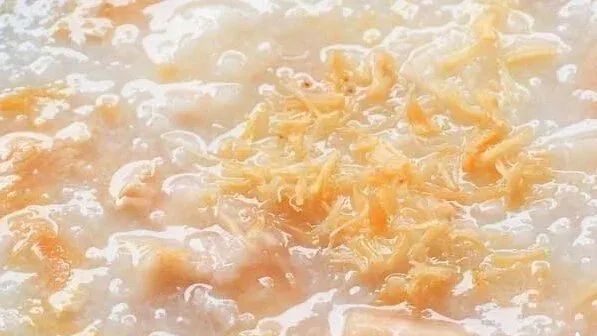
1. Codonopsis and Lingzhi Porridge
Codonopsis, Fu Ling, and ginger each 10g, and 100g of japonica rice. First, decoct the three ingredients to extract the juice, then add the rice to cook into porridge. Can add salt for flavor.
Origin: “Sheng Ji Zong Lu”. This formula uses Codonopsis and Fu Ling to tonify the spleen and benefit the stomach, while ginger warms the middle and strengthens the stomach, stopping vomiting, and japonica rice nourishes the spleen and stomach. Used for spleen and stomach deficiency, poor appetite, vomiting, and weight loss.
2. Codonopsis and Jujube Rice
10g of Codonopsis, 10 jujubes, and 150g of glutinous rice. First, wash the Codonopsis and jujubes, decoct to extract the juice, then steam the glutinous rice, invert it into a bowl, pour the Codonopsis and jujube juice over it, and add an appropriate amount of white sugar. Can be eaten twice daily.
Origin: “Xing Yuan Lu”. This formula uses Codonopsis to tonify the spleen and benefit Qi, while jujubes and glutinous rice work synergistically with Codonopsis. Used for spleen deficiency and Qi weakness.
3. Codonopsis and Huang Qi Porridge
10g each of Codonopsis and Huang Qi, and 100g of japonica rice. Decoct the Codonopsis and Huang Qi to extract the juice, then add the japonica rice to cook into porridge. Sweeten with white sugar.
This formula uses both Codonopsis and Huang Qi to tonify the Qi of the spleen and lungs, with Huang Qi also solidifying the exterior and stopping sweating. Used for lung and spleen Qi deficiency, fatigue, shortness of breath, spontaneous sweating, and loose stools.
4. Liang Yi Paste
Equal parts of Codonopsis and Shu Di. Add water to decoct to extract a concentrated juice, then add an equal amount of white sugar and boil until thick. Take 1-2 spoonfuls each time, or dissolve in warm water for drinking.
Origin: “Jing Yue Quanshu”. This formula uses Codonopsis to tonify Qi, while Shu Di nourishes blood. Used for both Qi and blood deficiency, fatigue, and dizziness.
5. Codonopsis and Frog Juice
Main ingredients: 2 frogs, 3g of Codonopsis.
Ingredients: Salt and monosodium glutamate to taste.
Method: 1. Clean and skin the frogs, cut into pieces, and place in a small stewing pot. 2. Add Codonopsis and about 1 bowl of boiling water, and stew for about 1 hour. 3. Remove the herb residue before eating, and season with monosodium glutamate and salt.
Features: The soup is white and the meat is tender.
Medicinal value: Codonopsis is sweet and neutral, can strengthen the spleen, nourish the lungs, tonify Qi, and nourish blood. Stewing with sweet and neutral frogs can treat chronic nephritis, weakness, poor appetite, blood deficiency with a sallow complexion, insufficient Qi, and fatigue, but should be avoided by pregnant women and on an empty stomach.
6. Codonopsis and Goji Liver Porridge
Main ingredients: 20g of Codonopsis, 30g of Goji Berries, 50g of pig liver, and 60g of japonica rice.
Method: Cook together into porridge, taken 1-2 times daily.
Medicinal value: Mainly treats age-related cataracts with liver and kidney deficiency: blurred vision, dizziness, tinnitus, soreness in the waist and legs, pale tongue, thin coating, and thin rapid pulse.
Dish name: Codonopsis and Goji Chicken Soup
Main ingredients: 30g of Codonopsis, 30g of Goji Berries, 20g of longan meat, and 150g of chicken.
Method: Cook together in a clay pot, adding a little wine and salt for flavor when done. Take 1-2 times daily.
Medicinal value: Mainly treats periodontal disease due to Qi and blood deficiency: pale and withered gums, exposed tooth roots, loose teeth, frequent dreams, pale tongue, thin white coating, and thin pulse.
7. Codonopsis and North Apricot Stewed Pig Lung
Main ingredients: 200g of pig lung, 20g of Codonopsis, and 10g of North Apricot.
Method: Stew and season to drink the soup and eat the pig lung.
Medicinal value: Mainly treats chronic bronchitis with lung and spleen Qi deficiency: cough with white and thin phlegm, spontaneous sweating, shortness of breath, reduced appetite, loose stools, fatigue, low voice, and a pale tongue with a white coating and weak pulse.
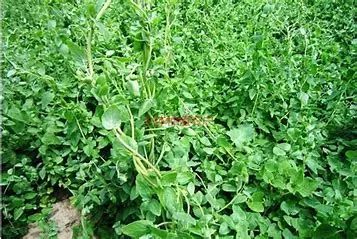
05、Precautions
Side Effects of Codonopsis
Codonopsis is a Qi-tonifying herb, and normal use generally has no side effects. However, prolonged use or excessive dosage may overly tonify Qi, harming the body’s true Qi and causing dryness.
Codonopsis Toxicity and Side Effects
The median lethal dose of Codonopsis water decoction administered orally to mice is 240.3g/kg. The median lethal dose of total saponins from the underground part of Codonopsis administered orally to mice is 2.7g/kg. The median lethal dose of Codonopsis injection administered intraperitoneally to mice is 79.21±3.6g (raw herb)/kg, equivalent to 317 times the commonly used oral dosage. The median lethal dose of Codonopsis alkaloids administered intraperitoneally to mice is 666mg/kg to 778mg/kg. Codonopsis has very low toxicity; daily subcutaneous injection of 0.5g per rat for 13 days showed no toxic reactions; daily intraperitoneal injection of 1g per rabbit for 15 days also showed no toxic reactions.
Clinical Application Reactions
Generally, there are no adverse reactions. However, if the dosage is too large (exceeding 60g per dose), it may cause discomfort in the precordial area and arrhythmia. Symptoms can resolve on their own after discontinuation.
